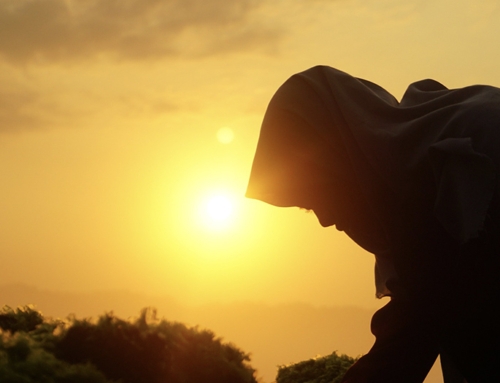Prophets in Islam: Guiding Humanity towards God’s Message
On their own, human beings cannot be fully guided, understand God, the hereafter, or the purpose of life. Accordingly, God communicated to mankind by selecting prophets who would deliver his message to the rest of humanity. To convey the purpose of existence to humans, God sent clear and practical instructions through prophets. Muslims believe that a prophet was selected for every nation at some point in its history. These prophets Adam, Noah, Abraham, Isaac, Moses, Jesus, and Muhammad, peace be upon them all. Muslims believe there were about 124,000 prophets in all, of whom only 25 are mentioned by name in the Quran, the holy book of Islam.
Each Prophet Conveyed the Same Message
The religion that God established for all mankind is Islam, which means to submit or surrender. Islam is not limited to the revelation that was sent to the prophet Muhammad peace be upon him, but was also the message of previous prophets. Therefore, the Qurʾān teaches that previous religions, such as Christianity and Judaism, in their authentic and original forms were based on the Oneness of God.
Unity in Worship and Morality
Each prophet conveyed the consistent divine message of worshiping one God and living a morally upright life. However, the message of these prophets was lost, abandoned, or changed over time, and only parts of the original message remained intact. God sent Muhammad, peace be upon him, as the final prophet to all of humanity in the 7th century C.E. to restore the divine message of all prophets. Muhammad did not bring a new message, but conveyed the same message as previous prophets. In the chapter of the Qurʾān titled “The Prophets” (Al-Anbiyā’) it states: We did not send any messenger before you except that We revealed to him that, “There is no deity except Me, so worship Me.” (Qurʾān 21:25). In this same chapter, we also find God describing all prophets as belonging to the same religion Indeed this, your religion, is one religion, and I am your Lord, so worship Me (Qurʾān 21:92).
One Message, Different Laws
Abraham, Noah, Moses, Jesus, Muhammad and all other prophets are considered to be one family. The Prophet Muhammad peace be upon him said: “I am the nearest of all the people to Jesus, the son of Mary both in this world and the hereafter. The prophets are paternal brothers; their mothers are different, but their religion is one.” (Bukhari) This spiritual connection of brotherhood between prophets is due to the fact that all prophets delivered the same message, but at different times to different people. Muslim scholars have stated that the above quoted tradition, prophets are described as having different mothers because their laws and practices were different. However, they are paternal brothers because their creed was the same. In other words, prophets may have had different laws concerning prayer, marriage, charity, and purification, but their beliefs concerning God, the hereafter, scripture, and morals were the same.
Islam’s Perspective on Prophets and Their Role
Islam, Judaism and Christianity share the core concept that God sent prophets to guide their fellow people. However, Islam also differs from these two faiths on important aspects related to prophethood. For instance, Islam teaches that all prophets of God were of high moral character and did not succumb to the sins their people committed. For example, the Qurʾān exonerates Aaron even though the Old Testament depicts him as someone who worshipped the golden calf. Additionally, Islam strongly rejects deification of prophets, so Jesus is revered as a prophet of God, but not God or the son of God. At the same time, Islam recognizes that prophets were capable of human errors of judgment, but these unintended mistakes did not diminish their superior integrity.
Muslims Honor all Prophets
Muslims are obligated to believe in and honor all the prophets, and to testify that prophethood has been completed with the coming of Prophet Muhammad, peace be upon him.
“Say, ‘We believe in God and in what was sent down to us and what was sent down to Abraham, Ishmael, Isaac, Jacob, and the Tribes, and what was given to Moses, Jesus, and all the prophets by their Lord. We make no distinction between any of them, and we devote ourselves to Him.’” (Quran, 2:136)
Got Questions?
We have Answers. Get in touch now.








